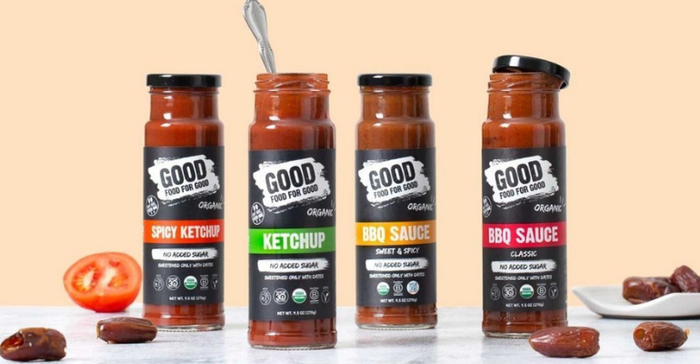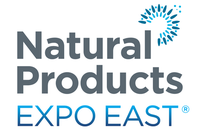This BIPOC immigrant woman built a thriving organic brand—here's howThis BIPOC immigrant woman built a thriving organic brand—here's how
Richa Gupta of Good Food For Good discusses her company's inspiring origin story and the importance of consumer education when it comes to organic.

Richa Gupta, founder and president of Good Food For Good, wanted to cook wholesome, real food for her family—like her mother did for her as a child in India—but she struggled to create convenient and healthy meals while working a nine-to-five. She founded her brand to help people eat better, whether it’s the consumers who purchase her products or the families who benefit via the brand’s Buy One, Feed One venture that donates a meal to someone in need for every product sold (so far, Good Food For Good has donated nearly 1 million meals).
As an immigrant, Gupta didn’t have connections or advantages to help her. She built her organic brand the old fashioned way: from the ground up, with no compromises.
What is your company's mission and how did you come to land on this mission?
Richa Gupta: At Good Food For Good, we are on a mission to make it easy for people to eat well and do good. We have been very clear about it from day one, hence the name Good Food For Good, which is not just our name, but our mission in four words. It’s a decision making tool for anyone in the company. We just have to ask ourselves if our decision will result in good food and will it be for the good of society.
Prior to founding Good Food For Good, I was working in marketing at a food consumer packaged goods company and was also a mother of a young four-year-old. As a mom, I was struggling to feed my family food that I called real and wholesome in the time that I had after work. Professionally, I was questioning the long-term impact of my work. These struggles inspired me to create something that has the potential to make a positive difference in the world. I was longing to do something that gave my life purpose and allowed me to live my values. Good Food For Good was the answer.
We live in a world where one in five deaths are linked to a bad diet full of processed sugar, salt and meat on one side, and on the other side one in nine people still go to bed hungry. I created Good Food For Good to make a positive difference through food for people who can afford it and also by donating to people who can’t through our Buy One, Feed One mission.
Why is it important for you to use clean and organic ingredients?
RG: Food is thy medicine. It’s the fuel we run on. We have only one body that needs to last a lifetime; yet, ironically, we are trained to look for the cheapest food to fuel it.
I use ingredients that are food—not that are derived from food—because our bodies have evolved to know the whole food and how to extract the benefits from it. Food science, extracts and isolates are fairly new to human evolution and I want to preserve wholesome food the way it was.
I chose organic not just because it is good for us, but also because it’s good for the planet. Organic farming produces much less greenhouse gas emissions and it does not pollute our waterways with biodiversity-killing pesticides.

What do you want to say to consumers by investing in organic certification?
RG: Third-party certification builds trust. By becoming certified organic you don’t just have to take my word. It’s an independent third party certifier that makes sure every ingredient we use is grown using organic farming. I would say, ingredients matter and how they are grown matter a lot, not just for your health but also for the health of this planet we all call home.
What are some notable challenges you've met along the way, and how did you overcome them?
RG: That’s a loaded question. Just like every entrepreneur, I had a series of challenges that I had to overcome. Being a BIPOC immigrant woman with no roots in the country made it a bit more challenging, and then my own personal values made it even harder to accept options that might have been good for business.
Our commitment to organic posed a few challenges in product development, as the supply chain of ingredients is not as good as conventional. We had to reformulate to ensure that we only use the organic ingredients that are readily available. One of our co-packers dropped our line right before we were supposed to go national with Canadian distributors because he felt the production was too complicated. I had to rent a commercial kitchen and scramble to find staff to take it back on in-house within days.
Not having any roots in the country also posed a big challenge, as I really didn’t have a network to begin with. I had to start from scratch and just keep knocking on doors until I got the answers. It ended up being a longer path to reach where I am now because I didn’t have a community that I could have gone to to get answers or recommendations.
I have also seen unconscious bias in action, since most of our products are not from the culture I was born in. I have seen people assume things because of the color of my skin, for example, that I am sampling curry even though I was sampling barbecue sauce or ketchup. This is something that I don’t know how to overcome.
What is your message for other BIPOC brand owners in the organic space?
RG: I think this is for all of us in the organic space, irrespective of the color of our skin: We have a big job ahead of us, and most consumers still don’t have a clear understanding of organic and its benefits not just for them but for the environment. We all need to work towards educating them on the long-term value of the extra dollar they pay for organic.

Natural-Products-Expo-East-logo.png
This article is the second in a series highlighting BIPOC and certified USDA Organic exhibitors at Natural Products Expo East 2021. Read the previous interview here.Read more about:
OrganicAbout the Author
You May Also Like



